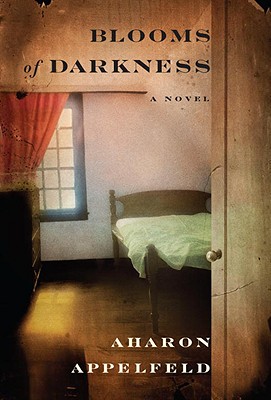‘Blooms of Darkness’ by Aharon Appelfeld
 “Everything I see, I’ll lock up in my heart.”
“Everything I see, I’ll lock up in my heart.”
Eleven-year-old Hugo lives by those words as he embarks on a perilous journey to safety during World War II.
Hugo watches from the window of his home in the ghetto where the Jews have been confined. He sees his friends and neighbors being deported and arrested. Others pay peasants to take their children into the mountains, though rumors persist that these peasants take the money and turn the children over to the authorities.
As the ghetto’s population diminishes, Hugo’s mother, distrustful of the peasants, instead turns to a prostitute whom she had befriended. Quietly, Hugo and his mother steal into the night, creeping through the stench of the sewer en route to Mariana’s.
Hugo’s mother doesn’t tarry once they reach the brothel. She tells her son to be careful, quiet and polite, then hurries off to find her own refuge. Mariana takes Hugo up to her room and shows him where he’ll be hiding: the closet.
Hugo senses that he is now standing at the threshold of a new period in his life, a period full of secrets and dangers, and he has to be cautious and strong, as he promised his mother.
The boy doesn’t completely understand what happens on the other side of the closet door. He hears men’s voices, German soldiers, and Mariana’s laughter, drunken cries and complaints. Hugo, a cerebral child, soaks in every word, carefully piecing together what everything means.
Hugo has a difficult time keeping his busy mind occupied in the closet. He sees images of those snatched from the ghetto — his friends, his father as well as his mother — and he has conversations with them. As the months pass, his ghostly visions darken, his loved ones appear older and he fears his memory will fade.
Hugo’s despair grows and he comes to rely more on Mariana. She calls him her puppy and increasingly depends on his compassion after enduring abuse from Nazi customers.
As the Russians close in, the prostitutes begin to flee, knowing too well what becomes of Nazi collaborators. Mariana and Hugo run away as well. They seek comfort in each other both emotionally and physically, and though others express disgust toward their relationship, the boy and the woman don’t care.
Aharon Appelfeld’s “Blooms of Darkness” (translated from the Hebrew by Jeffrey M. Green) strains the heart as his characters face the unimaginable. In Hugo, the Israeli author has crafted a memorable character, one who — though terrified — moves into an unknown future with courage and grace.
The physical relationship between Hugo and Mariana no doubt will make some readers uncomfortable, but solace comes in many forms when death waits around every corner.









